afterLoad (456.48KB) (2.07ms)
afterInitialise (1.27MB) (17.57ms)
afterRoute (840.55KB) (11.81ms)
beforeRenderComponent com_tags (21.36KB) (1.31ms)
afterRenderComponent com_tags (3.98MB) (213ms)
afterDispatch (27.41KB) (2.41ms)
beforeRenderRawModule mod_articles_category (READ MORE...) (423.86KB) (10.11ms)
Before Access::preloadComponents (all components) (50.9KB) (1.46ms)
After Access::preloadComponents (all components) (127.55KB) (593μs)
Before Access::getAssetRules (id:8 name:com_content) (840B) (15μs)
After Access::getAssetRules (id:8 name:com_content) (7.05KB) (38μs)
afterRenderRawModule mod_articles_category (READ MORE...) (6.85KB) (114ms)
beforeRenderRawModule mod_custom (BOOST YOUR IMMUNE DEFENSE) (6.45KB) (29μs)
afterRenderRawModule mod_custom (BOOST YOUR IMMUNE DEFENSE) (3.8KB) (181μs)
beforeRenderRawModule mod_tags_popular (Search) (2.36KB) (15μs)
afterRenderRawModule mod_tags_popular (Search) (44.96KB) (102ms)
beforeRenderRawModule mod_custom (Get additionel and more detailed knowledge ) (816B) (25μs)
afterRenderRawModule mod_custom (Get additionel and more detailed knowledge ) (1.55KB) (44μs)
beforeRenderRawModule mod_custom (Overview of vitamins, minerals, and essential fatty acids) (768B) (11μs)
afterRenderRawModule mod_custom (Overview of vitamins, minerals, and essential fatty acids) (960B) (23μs)
beforeRenderRawModule mod_custom (Q10 goes by many names) (608B) (10μs)
afterRenderRawModule mod_custom (Q10 goes by many names) (928B) (18μs)
beforeRenderRawModule mod_custom (Check this before you buy a Q10 product) (752B) (9μs)
afterRenderRawModule mod_custom (Check this before you buy a Q10 product) (944B) (19μs)
beforeRenderRawModule mod_custom (Are you taking supplements) (736B) (8μs)
afterRenderRawModule mod_custom (Are you taking supplements) (1.03KB) (18μs)
beforeRenderRawModule mod_custom (Weight loss that works) (736B) (9μs)
afterRenderRawModule mod_custom (Weight loss that works) (1.03KB) (17μs)
beforeRenderRawModule mod_custom (Antiaging) (720B) (9μs)
afterRenderRawModule mod_custom (Antiaging) (912B) (29μs)
beforeRenderRawModule mod_menu (Are you getting enough vitamins and minerals?) (2.5KB) (12μs)
afterRenderRawModule mod_menu (Are you getting enough vitamins and minerals?) (22.39KB) (1.46ms)
beforeRenderRawModule mod_menu (The key to increased well-being) (736B) (22μs)
afterRenderRawModule mod_menu (The key to increased well-being) (17.83KB) (253μs)
beforeRenderRawModule mod_menu (Did you know.....) (720B) (16μs)
afterRenderRawModule mod_menu (Did you know.....) (25.52KB) (291μs)
beforeRenderRawModule mod_custom (Useful Links) (1.06KB) (17μs)
afterRenderRawModule mod_custom (Useful Links) (1.02KB) (32μs)
beforeRenderRawModule mod_custom (Chronic fatigue tied Alan to his bed but Q10 capsules saved him:) (244.28KB) (4.05ms)
afterRenderRawModule mod_custom (Chronic fatigue tied Alan to his bed but Q10 capsules saved him:) (1.06KB) (43μs)
beforeRenderModule mod_custom (Chronic fatigue tied Alan to his bed but Q10 capsules saved him:) (768B) (3μs)
afterRenderModule mod_custom (Chronic fatigue tied Alan to his bed but Q10 capsules saved him:) (1.3KB) (62μs)
beforeRenderRawModule mod_custom (Cholesterol-lowering without side effects:) (368B) (12μs)
afterRenderRawModule mod_custom (Cholesterol-lowering without side effects:) (1.06KB) (1.06ms)
beforeRenderModule mod_custom (Cholesterol-lowering without side effects:) (752B) (6μs)
afterRenderModule mod_custom (Cholesterol-lowering without side effects:) (1.28KB) (59μs)
beforeRenderModule mod_articles_category (READ MORE...) (20.82KB) (356μs)
afterRenderModule mod_articles_category (READ MORE...) (1.25KB) (45μs)
beforeRenderModule mod_custom (BOOST YOUR IMMUNE DEFENSE) (6.81KB) (12μs)
afterRenderModule mod_custom (BOOST YOUR IMMUNE DEFENSE) (1.28KB) (25μs)
beforeRenderModule mod_tags_popular (Search) (1.98KB) (11μs)
afterRenderModule mod_tags_popular (Search) (1.27KB) (23μs)
beforeRenderModule mod_custom (Get additionel and more detailed knowledge ) (1.17KB) (9μs)
afterRenderModule mod_custom (Get additionel and more detailed knowledge ) (1.3KB) (23μs)
beforeRenderModule mod_custom (Overview of vitamins, minerals, and essential fatty acids) (384B) (8μs)
afterRenderModule mod_custom (Overview of vitamins, minerals, and essential fatty acids) (1.31KB) (23μs)
beforeRenderModule mod_custom (Q10 goes by many names) (208B) (9μs)
afterRenderModule mod_custom (Q10 goes by many names) (1.27KB) (22μs)
beforeRenderModule mod_custom (Check this before you buy a Q10 product) (352B) (9μs)
afterRenderModule mod_custom (Check this before you buy a Q10 product) (1.28KB) (21μs)
beforeRenderModule mod_custom (Are you taking supplements) (352B) (9μs)
afterRenderModule mod_custom (Are you taking supplements) (1.28KB) (21μs)
beforeRenderModule mod_custom (Weight loss that works) (336B) (9μs)
afterRenderModule mod_custom (Weight loss that works) (1.27KB) (22μs)
beforeRenderModule mod_custom (Antiaging) (336B) (8μs)
afterRenderModule mod_custom (Antiaging) (3.77KB) (22μs)
beforeRenderModule mod_menu (Are you getting enough vitamins and minerals?) (2.13KB) (11μs)
afterRenderModule mod_menu (Are you getting enough vitamins and minerals?) (1.3KB) (21μs)
beforeRenderModule mod_menu (The key to increased well-being) (352B) (10μs)
afterRenderModule mod_menu (The key to increased well-being) (1.28KB) (21μs)
beforeRenderModule mod_menu (Did you know.....) (336B) (9μs)
afterRenderModule mod_menu (Did you know.....) (1.27KB) (22μs)
beforeRenderModule mod_custom (Useful Links) (1.44KB) (9μs)
afterRenderModule mod_custom (Useful Links) (1.27KB) (21μs)
beforeRenderRawModule mod_menu (Main Menu - English) (29.14KB) (1.08ms)
afterRenderRawModule mod_menu (Main Menu - English) (186.95KB) (3.19ms)
beforeRenderModule mod_menu (Main Menu - English) (720B) (6μs)
afterRenderModule mod_menu (Main Menu - English) (4.86KB) (96μs)
beforeRenderRawModule mod_languages (Sprogskift) (3.94KB) (19μs)
afterRenderRawModule mod_languages (Sprogskift) (22.55KB) (1.45ms)
beforeRenderModule mod_languages (Sprogskift) (720B) (6μs)
afterRenderModule mod_languages (Sprogskift) (5.31KB) (20μs)
beforeRenderRawModule mod_finder () (6.34KB) (16μs)
afterRenderRawModule mod_finder () (128.59KB) (1.56ms)
beforeRenderModule mod_finder () (704B) (5μs)
afterRenderModule mod_finder () (3.29KB) (32μs)
beforeRenderRawModule mod_custom () (6.62KB) (141μs)
afterRenderRawModule mod_custom () (22.68KB) (817μs)
beforeRenderModule mod_custom () (704B) (6μs)
afterRenderModule mod_custom () (1.23KB) (54μs)
beforeRenderRawModule mod_menu (Main Menu - English) (5.07KB) (102μs)
afterRenderRawModule mod_menu (Main Menu - English) (6.3KB) (764μs)
beforeRenderModule mod_menu (Main Menu - English) (720B) (4μs)
afterRenderModule mod_menu (Main Menu - English) (1.25KB) (50μs)
beforeRenderRawModule mod_languages (Sprogskift Mobil) (912B) (17μs)
afterRenderRawModule mod_languages (Sprogskift Mobil) (3.89KB) (667μs)
beforeRenderModule mod_languages (Sprogskift Mobil) (720B) (4μs)
afterRenderModule mod_languages (Sprogskift Mobil) (1.27KB) (33μs)
beforeRenderRawModule mod_finder () (2.3KB) (9μs)
afterRenderRawModule mod_finder () (6.25KB) (504μs)
beforeRenderModule mod_finder () (704B) (4μs)
afterRenderModule mod_finder () (1.23KB) (45μs)
beforeRenderRawModule mod_custom () (8.66KB) (178μs)
afterRenderRawModule mod_custom () (904B) (149μs)
beforeRenderModule mod_custom () (704B) (3μs)
afterRenderModule mod_custom () (2.43KB) (24μs)
beforeRenderRawModule mod_custom () (688B) (92μs)
afterRenderRawModule mod_custom () (896B) (103μs)
beforeRenderModule mod_custom () (704B) (3μs)
afterRenderModule mod_custom () (2.71KB) (23μs)
afterRender (804.83KB) (9.85ms)
| 1 x afterRenderComponent com_tags (3.98MB) (42.06%) | 213.47ms |
| 1 x afterRenderRawModule mod_articles_category (READ MORE...) (6.85KB) (22.44%) | 113.87ms |
| 1 x afterRenderRawModule mod_tags_popular (Search) (44.96KB) (20.2%) | 102.49ms |
| 1 x afterInitialise (1.27MB) (3.46%) | 17.57ms |
| 1 x afterRoute (840.55KB) (2.33%) | 11.81ms |
| 1 x beforeRenderRawModule mod_articles_category (READ MORE...) (423.86KB) (1.99%) | 10.11ms |
| 1 x afterRender (804.83KB) (1.94%) | 9.85ms |
| 1 x beforeRenderRawModule mod_custom (Chronic fatigue tied Alan to his bed but Q10 capsules saved him:) (244.28KB) (0.8%) | 4.05ms |
| 1 x afterRenderRawModule mod_menu (Main Menu - English) (186.95KB) (0.63%) | 3.19ms |
| 1 x afterDispatch (27.41KB) (0.47%) | 2.41ms |
| 1 x afterLoad (456.48KB) (0.41%) | 2.07ms |
| 1 x afterRenderRawModule mod_finder () (128.59KB) (0.31%) | 1.56ms |
| 1 x Before Access::preloadComponents (all components) (50.9KB) (0.29%) | 1.46ms |
| 1 x afterRenderRawModule mod_menu (Are you getting enough vitamins and minerals?) (22.39KB) (0.29%) | 1.46ms |
| 1 x afterRenderRawModule mod_languages (Sprogskift) (22.55KB) (0.29%) | 1.45ms |
| 1 x beforeRenderComponent com_tags (21.36KB) (0.26%) | 1.31ms |
| 1 x beforeRenderRawModule mod_menu (Main Menu - English) (29.14KB) (0.21%) | 1.08ms |
| 1 x afterRenderRawModule mod_custom (Cholesterol-lowering without side effects:) (1.06KB) (0.21%) | 1.06ms |
| 1 x afterRenderRawModule mod_custom () (22.68KB) (0.16%) | 817μs |
| 1 x afterRenderRawModule mod_menu (Main Menu - English) (6.3KB) (0.15%) | 764μs |
| 1 x afterRenderRawModule mod_languages (Sprogskift Mobil) (3.89KB) (0.13%) | 667μs |
| 1 x After Access::preloadComponents (all components) (127.55KB) (0.12%) | 593μs |
| 1 x afterRenderRawModule mod_finder () (6.25KB) (0.1%) | 504μs |
| 1 x beforeRenderModule mod_articles_category (READ MORE...) (20.82KB) (0.07%) | 356μs |
| 1 x afterRenderRawModule mod_menu (Did you know.....) (25.52KB) (0.06%) | 291μs |
| 1 x afterRenderRawModule mod_menu (The key to increased well-being) (17.83KB) (0.05%) | 253μs |
| 1 x afterRenderRawModule mod_custom (BOOST YOUR IMMUNE DEFENSE) (3.8KB) (0.04%) | 181μs |
| 1 x beforeRenderRawModule mod_custom () (8.66KB) (0.04%) | 178μs |
| 1 x afterRenderRawModule mod_custom () (904B) (0.03%) | 149μs |
| 1 x beforeRenderRawModule mod_custom () (6.62KB) (0.03%) | 141μs |
| 1 x afterRenderRawModule mod_custom () (896B) (0.02%) | 103μs |
| 1 x beforeRenderRawModule mod_menu (Main Menu - English) (5.07KB) (0.02%) | 102μs |
| 1 x afterRenderModule mod_menu (Main Menu - English) (4.86KB) (0.02%) | 96μs |
| 1 x beforeRenderRawModule mod_custom () (688B) (0.02%) | 92μs |
| 1 x afterRenderModule mod_custom (Chronic fatigue tied Alan to his bed but Q10 capsules saved him:) (1.3KB) (0.01%) | 62μs |
| 1 x afterRenderModule mod_custom (Cholesterol-lowering without side effects:) (1.28KB) (0.01%) | 59μs |
| 1 x afterRenderModule mod_custom () (1.23KB) (0.01%) | 54μs |
| 1 x afterRenderModule mod_menu (Main Menu - English) (1.25KB) (0.01%) | 50μs |
| 1 x afterRenderModule mod_articles_category (READ MORE...) (1.25KB) (0.01%) | 45μs |
| 1 x afterRenderModule mod_finder () (1.23KB) (0.01%) | 45μs |
| 1 x afterRenderRawModule mod_custom (Get additionel and more detailed knowledge ) (1.55KB) (0.01%) | 44μs |
| 1 x afterRenderRawModule mod_custom (Chronic fatigue tied Alan to his bed but Q10 capsules saved him:) (1.06KB) (0.01%) | 43μs |
| 1 x After Access::getAssetRules (id:8 name:com_content) (7.05KB) (0.01%) | 38μs |
| 1 x afterRenderModule mod_languages (Sprogskift Mobil) (1.27KB) (0.01%) | 33μs |
| 1 x afterRenderRawModule mod_custom (Useful Links) (1.02KB) (0.01%) | 32μs |
| 1 x afterRenderModule mod_finder () (3.29KB) (0.01%) | 32μs |
| 1 x afterRenderRawModule mod_custom (Antiaging) (912B) (0.01%) | 29μs |
| 1 x beforeRenderRawModule mod_custom (BOOST YOUR IMMUNE DEFENSE) (6.45KB) (0.01%) | 29μs |
| 1 x beforeRenderRawModule mod_custom (Get additionel and more detailed knowledge ) (816B) (0%) | 25μs |
| 1 x afterRenderModule mod_custom (BOOST YOUR IMMUNE DEFENSE) (1.28KB) (0%) | 25μs |
| 1 x afterRenderModule mod_custom () (2.43KB) (0%) | 24μs |
| 1 x afterRenderModule mod_custom () (2.71KB) (0%) | 23μs |
| 1 x afterRenderRawModule mod_custom (Overview of vitamins, minerals, and essential fatty acids) (960B) (0%) | 23μs |
| 1 x afterRenderModule mod_tags_popular (Search) (1.27KB) (0%) | 23μs |
| 1 x afterRenderModule mod_custom (Get additionel and more detailed knowledge ) (1.3KB) (0%) | 23μs |
| 1 x afterRenderModule mod_custom (Overview of vitamins, minerals, and essential fatty acids) (1.31KB) (0%) | 23μs |
| 1 x beforeRenderRawModule mod_menu (The key to increased well-being) (736B) (0%) | 22μs |
| 1 x afterRenderModule mod_custom (Antiaging) (3.77KB) (0%) | 22μs |
| 1 x afterRenderModule mod_custom (Q10 goes by many names) (1.27KB) (0%) | 22μs |
| 1 x afterRenderModule mod_custom (Weight loss that works) (1.27KB) (0%) | 22μs |
| 1 x afterRenderModule mod_menu (Did you know.....) (1.27KB) (0%) | 22μs |
| 1 x afterRenderModule mod_custom (Check this before you buy a Q10 product) (1.28KB) (0%) | 21μs |
| 1 x afterRenderModule mod_custom (Are you taking supplements) (1.28KB) (0%) | 21μs |
| 1 x afterRenderModule mod_menu (Are you getting enough vitamins and minerals?) (1.3KB) (0%) | 21μs |
| 1 x afterRenderModule mod_menu (The key to increased well-being) (1.28KB) (0%) | 21μs |
| 1 x afterRenderModule mod_custom (Useful Links) (1.27KB) (0%) | 21μs |
| 1 x afterRenderModule mod_languages (Sprogskift) (5.31KB) (0%) | 20μs |
| 1 x beforeRenderRawModule mod_languages (Sprogskift) (3.94KB) (0%) | 19μs |
| 1 x afterRenderRawModule mod_custom (Check this before you buy a Q10 product) (944B) (0%) | 19μs |
| 1 x afterRenderRawModule mod_custom (Q10 goes by many names) (928B) (0%) | 18μs |
| 1 x afterRenderRawModule mod_custom (Are you taking supplements) (1.03KB) (0%) | 18μs |
| 1 x beforeRenderRawModule mod_custom (Useful Links) (1.06KB) (0%) | 17μs |
| 1 x afterRenderRawModule mod_custom (Weight loss that works) (1.03KB) (0%) | 17μs |
| 1 x beforeRenderRawModule mod_languages (Sprogskift Mobil) (912B) (0%) | 17μs |
| 1 x beforeRenderRawModule mod_menu (Did you know.....) (720B) (0%) | 16μs |
| 1 x beforeRenderRawModule mod_finder () (6.34KB) (0%) | 16μs |
| 1 x Before Access::getAssetRules (id:8 name:com_content) (840B) (0%) | 15μs |
| 1 x beforeRenderRawModule mod_tags_popular (Search) (2.36KB) (0%) | 15μs |
| 1 x beforeRenderModule mod_custom (BOOST YOUR IMMUNE DEFENSE) (6.81KB) (0%) | 12μs |
| 1 x beforeRenderRawModule mod_menu (Are you getting enough vitamins and minerals?) (2.5KB) (0%) | 12μs |
| 1 x beforeRenderRawModule mod_custom (Cholesterol-lowering without side effects:) (368B) (0%) | 12μs |
| 3 x beforeRenderModule mod_custom () (704B) (0%) | 12μs |
| 1 x beforeRenderModule mod_tags_popular (Search) (1.98KB) (0%) | 11μs |
| 1 x beforeRenderRawModule mod_custom (Overview of vitamins, minerals, and essential fatty acids) (768B) (0%) | 11μs |
| 1 x beforeRenderModule mod_menu (Are you getting enough vitamins and minerals?) (2.13KB) (0%) | 11μs |
| 1 x beforeRenderRawModule mod_custom (Q10 goes by many names) (608B) (0%) | 10μs |
| 1 x beforeRenderModule mod_menu (The key to increased well-being) (352B) (0%) | 10μs |
| 2 x beforeRenderModule mod_menu (Main Menu - English) (720B) (0%) | 10μs |
| 1 x beforeRenderRawModule mod_custom (Check this before you buy a Q10 product) (752B) (0%) | 9μs |
| 1 x beforeRenderRawModule mod_custom (Weight loss that works) (736B) (0%) | 9μs |
| 1 x beforeRenderRawModule mod_custom (Antiaging) (720B) (0%) | 9μs |
| 1 x beforeRenderModule mod_custom (Get additionel and more detailed knowledge ) (1.17KB) (0%) | 9μs |
| 1 x beforeRenderModule mod_custom (Q10 goes by many names) (208B) (0%) | 9μs |
| 1 x beforeRenderModule mod_custom (Check this before you buy a Q10 product) (352B) (0%) | 9μs |
| 1 x beforeRenderModule mod_custom (Are you taking supplements) (352B) (0%) | 9μs |
| 1 x beforeRenderModule mod_custom (Weight loss that works) (336B) (0%) | 9μs |
| 1 x beforeRenderModule mod_menu (Did you know.....) (336B) (0%) | 9μs |
| 1 x beforeRenderModule mod_custom (Useful Links) (1.44KB) (0%) | 9μs |
| 1 x beforeRenderRawModule mod_finder () (2.3KB) (0%) | 9μs |
| 2 x beforeRenderModule mod_finder () (704B) (0%) | 9μs |
| 1 x beforeRenderRawModule mod_custom (Are you taking supplements) (736B) (0%) | 8μs |
| 1 x beforeRenderModule mod_custom (Overview of vitamins, minerals, and essential fatty acids) (384B) (0%) | 8μs |
| 1 x beforeRenderModule mod_custom (Antiaging) (336B) (0%) | 8μs |
| 1 x beforeRenderModule mod_custom (Cholesterol-lowering without side effects:) (752B) (0%) | 6μs |
| 1 x beforeRenderModule mod_languages (Sprogskift) (720B) (0%) | 6μs |
| 1 x beforeRenderModule mod_languages (Sprogskift Mobil) (720B) (0%) | 4μs |
| 1 x beforeRenderModule mod_custom (Chronic fatigue tied Alan to his bed but Q10 capsules saved him:) (768B) (0%) | 3μs |
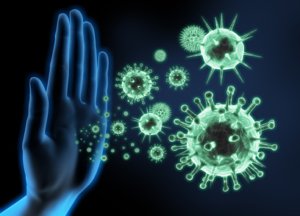 According to the statistics, far too many patients contract an infection while being hospitalized in a Danish hospital. This has enormous human and economic costs that need to be addressed. Hospital infections are not only a consequence of poor hygiene, it actually turns out that 40 percent of the patients are malnourished to some degree, which impairs their immune system and makes them an easier target for infections. Lack of vitamin C, vitamin D, selenium, zinc, and iron seem to be the big and overlooked problem.
According to the statistics, far too many patients contract an infection while being hospitalized in a Danish hospital. This has enormous human and economic costs that need to be addressed. Hospital infections are not only a consequence of poor hygiene, it actually turns out that 40 percent of the patients are malnourished to some degree, which impairs their immune system and makes them an easier target for infections. Lack of vitamin C, vitamin D, selenium, zinc, and iron seem to be the big and overlooked problem.







 It is only natural to expect a nutritional supplement to be absorbed and deliver an effect. However, for this to happen, you must look for products with documentation. Countless multivitamin products and supplements with Q10, selenium, chromium, magnesium, and iron have very poor quality and are not properly absorbed. Our ageing process alone impairs the uptake of vitamins and minerals, and the same is the case if we lack essential fats, have too high calcium levels, or use antacids and other types of medicine – so this also needs to be taken into account.
It is only natural to expect a nutritional supplement to be absorbed and deliver an effect. However, for this to happen, you must look for products with documentation. Countless multivitamin products and supplements with Q10, selenium, chromium, magnesium, and iron have very poor quality and are not properly absorbed. Our ageing process alone impairs the uptake of vitamins and minerals, and the same is the case if we lack essential fats, have too high calcium levels, or use antacids and other types of medicine – so this also needs to be taken into account. Even if you eat a healthy and balanced diet, it can be difficult to get enough
Even if you eat a healthy and balanced diet, it can be difficult to get enough  It is not the actual COVID-19 virus that can become lethal. It is the immune system’s overreaction with hyperinflammation and a storm of cytokines that destroys healthy tissue in the lungs, the cardiovascular system, and other places in the body, according to a new article that is published in The Lancet. The capacity of the immune system determines if an infection like COVID-19 is either harmless or life-threatening. For that reason, hygienic measures, masks, isolation, and delayed vaccines are not sufficient. We also need to bolster our immune system against COVID-19 and other pandemics that may occur in the future. Let’s look closer at vitamin C, vitamin D, selenium and zinc, all of which are essential for preventing a well-functioning immune system from going off its rails. What is also worth mentioning is that many people lack these nutrients, especially older people and other exposed groups.
It is not the actual COVID-19 virus that can become lethal. It is the immune system’s overreaction with hyperinflammation and a storm of cytokines that destroys healthy tissue in the lungs, the cardiovascular system, and other places in the body, according to a new article that is published in The Lancet. The capacity of the immune system determines if an infection like COVID-19 is either harmless or life-threatening. For that reason, hygienic measures, masks, isolation, and delayed vaccines are not sufficient. We also need to bolster our immune system against COVID-19 and other pandemics that may occur in the future. Let’s look closer at vitamin C, vitamin D, selenium and zinc, all of which are essential for preventing a well-functioning immune system from going off its rails. What is also worth mentioning is that many people lack these nutrients, especially older people and other exposed groups.
 Around one in six pregnancies results in spontaneous abortion. Although there can be different reasons for this, scientists have found that eating a healthy diet with lots of vegetables, fruit, fish, shellfish, eggs, and grains can lower the risk by over 50 percent. This was shown in a meta-analysis from the University of Birmingham in England. Earlier research shows that selenium, a trace element that many people are deficient in, plays a particularly important role.
Around one in six pregnancies results in spontaneous abortion. Although there can be different reasons for this, scientists have found that eating a healthy diet with lots of vegetables, fruit, fish, shellfish, eggs, and grains can lower the risk by over 50 percent. This was shown in a meta-analysis from the University of Birmingham in England. Earlier research shows that selenium, a trace element that many people are deficient in, plays a particularly important role. According to Bruce Ames, an American biochemist, ageing processes are largely due to lack of nutrients. One important contributing factor is the fact that our uptake and utilization of vitamins and minerals decrease with age. In addition, a lot of different types of medicine block our ability to utilize different nutrients. As a result of this, many of our enzyme processes slow down, making our cells increasingly vulnerable and that increases our risk of disease. Nonetheless, there is a lot we can do to optimize our intake and utilization of nutrients, particularly with respect to vitamin B12, vitamin D, calcium, iron, selenium, and zinc. It is also worth taking a look at Q10 for energy turnover and melatonin for healthy sleep. Our endogenous synthesis of both compounds decreases with age.
According to Bruce Ames, an American biochemist, ageing processes are largely due to lack of nutrients. One important contributing factor is the fact that our uptake and utilization of vitamins and minerals decrease with age. In addition, a lot of different types of medicine block our ability to utilize different nutrients. As a result of this, many of our enzyme processes slow down, making our cells increasingly vulnerable and that increases our risk of disease. Nonetheless, there is a lot we can do to optimize our intake and utilization of nutrients, particularly with respect to vitamin B12, vitamin D, calcium, iron, selenium, and zinc. It is also worth taking a look at Q10 for energy turnover and melatonin for healthy sleep. Our endogenous synthesis of both compounds decreases with age.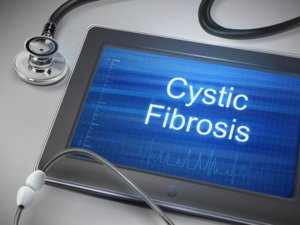 Supplementing with strong antioxidants such as beta-carotene, vitamin E, selenium, and coenzyme Q10 may help patients with cystic fibrosis by reducing a number of the respiratory infections that come with the disease. This was seen in a study by researchers at the Children’s Hospital Colorado and the University of Colorado, United States.
Supplementing with strong antioxidants such as beta-carotene, vitamin E, selenium, and coenzyme Q10 may help patients with cystic fibrosis by reducing a number of the respiratory infections that come with the disease. This was seen in a study by researchers at the Children’s Hospital Colorado and the University of Colorado, United States. Impaired sperm quality if one of the major reasons for involuntary infertility. Studies show that oxidative stress, an imbalance between harmful free radicals and protective antioxidants, causes damage to sperm cells. In a review article that is published in Reproductive Sciences, a group of researchers look closer at different molecular mechanisms and how vitamins C, E, selenium, zinc, and coenzyme Q10 plus other antioxidants protect the vulnerable sperm cells.
Impaired sperm quality if one of the major reasons for involuntary infertility. Studies show that oxidative stress, an imbalance between harmful free radicals and protective antioxidants, causes damage to sperm cells. In a review article that is published in Reproductive Sciences, a group of researchers look closer at different molecular mechanisms and how vitamins C, E, selenium, zinc, and coenzyme Q10 plus other antioxidants protect the vulnerable sperm cells. Veganism is on the rise, and experts have different views on whether or not plant-diets are suited for children. A team of Polish scientists has now discovered that children on vegan diets have low stature and lower bone density than children who eat meat and dairy products. Children on vegan diets also are also more likely to lack amino acids,
Veganism is on the rise, and experts have different views on whether or not plant-diets are suited for children. A team of Polish scientists has now discovered that children on vegan diets have low stature and lower bone density than children who eat meat and dairy products. Children on vegan diets also are also more likely to lack amino acids,  It is estimated that one billion people worldwide lack
It is estimated that one billion people worldwide lack 
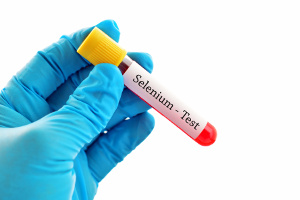
 We all need loads of energy to help us through the day feeling on top of the world. Needless to say, this requires stable blood sugar levels, daylight, exercise, and a good night’s sleep. But what are the energy-providing substances in our food? And why are Q10 and particular vitamins and minerals so essential for our energy metabolism and our physical and mental well-being? An article recently published in Medical News Today looks at this and explains that being deficient of a single nutrient can affect our metabolism, energy levels, and weight regulation. Luckily, this can be compensated for so we get the necessary energy boost.
We all need loads of energy to help us through the day feeling on top of the world. Needless to say, this requires stable blood sugar levels, daylight, exercise, and a good night’s sleep. But what are the energy-providing substances in our food? And why are Q10 and particular vitamins and minerals so essential for our energy metabolism and our physical and mental well-being? An article recently published in Medical News Today looks at this and explains that being deficient of a single nutrient can affect our metabolism, energy levels, and weight regulation. Luckily, this can be compensated for so we get the necessary energy boost.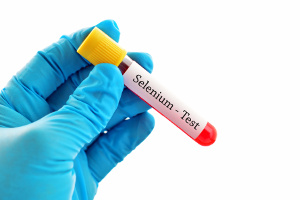
 Birth control pills are commonly used as a source of prevention. Most women seem to tolerate the pills rather well, but there are known side effects such as headaches, mood swings, and a slightly increased risk of blood clots and breast cancer. The different side effects are a result of the birth control pills and their disturbing impact on various enzyme processes, which depend on most B vitamins, vitamin C, magnesium, selenium, and zinc. Vitamin C, zinc, and selenium also serve as effective antioxidants that protect our cells and cardiovascular system against oxidative stress. It is therefore essential to get plenty of these nutrients in order to lower the risk of side effects.
Birth control pills are commonly used as a source of prevention. Most women seem to tolerate the pills rather well, but there are known side effects such as headaches, mood swings, and a slightly increased risk of blood clots and breast cancer. The different side effects are a result of the birth control pills and their disturbing impact on various enzyme processes, which depend on most B vitamins, vitamin C, magnesium, selenium, and zinc. Vitamin C, zinc, and selenium also serve as effective antioxidants that protect our cells and cardiovascular system against oxidative stress. It is therefore essential to get plenty of these nutrients in order to lower the risk of side effects. According to Danish research, more than one in three women suspect that their birth control pills cause side effects. Other studies show that birth control pills affect the body’s ability to utilize several different B vitamins, vitamin C, vitamin E, magnesium, selenium, and zinc. The lack of these essential nutrients contributes to a number of common side effects such as fluid retention, blood clots, cancer, and depression.
According to Danish research, more than one in three women suspect that their birth control pills cause side effects. Other studies show that birth control pills affect the body’s ability to utilize several different B vitamins, vitamin C, vitamin E, magnesium, selenium, and zinc. The lack of these essential nutrients contributes to a number of common side effects such as fluid retention, blood clots, cancer, and depression. Breast cancer is very common in the Western world and modern society. The disease is thought to be associated with lifestyle factors and lack of essential nutrients. For instance, it has been known for a long time that lack of vitamin D increases the risk of breast cancer. According to a new study that is published in the science journal Endocrinology, there is also a link between lack of vitamin D and the development of metastases in the lungs. Previous research also shows that the widespread deficiency of selenium, iodine, omega-3 fatty acids, and melatonin can increase the risk of breast cancer but supplements can help prevent the disease and possibly be used as add-on therapy.
Breast cancer is very common in the Western world and modern society. The disease is thought to be associated with lifestyle factors and lack of essential nutrients. For instance, it has been known for a long time that lack of vitamin D increases the risk of breast cancer. According to a new study that is published in the science journal Endocrinology, there is also a link between lack of vitamin D and the development of metastases in the lungs. Previous research also shows that the widespread deficiency of selenium, iodine, omega-3 fatty acids, and melatonin can increase the risk of breast cancer but supplements can help prevent the disease and possibly be used as add-on therapy. Breast cancer is the leading cancer form among women. Even though treatments have gotten a lot better the disease still has a high death toll. A Swedish-German study shows that having low levels of
Breast cancer is the leading cancer form among women. Even though treatments have gotten a lot better the disease still has a high death toll. A Swedish-German study shows that having low levels of  Having higher blood levels of
Having higher blood levels of  Yes, according to a new study published in Free Radical Biology & Medicine, lack of
Yes, according to a new study published in Free Radical Biology & Medicine, lack of  COVID-19 represents a serious global threat against public health and the economy because we still lack a vaccine and effective therapies. When COVID-19 becomes life-threatening it is primarily because the immune defense overreacts with a cytokine storm and hyperinflammation that destroys healthy tissue in the lungs, the circulatory system, and other places. Older people and heart failure patients already suffer from chronic low-grade, uncontrolled inflammation, to which nutrient deficiencies contribute and make the patients increasingly vulnerable. This also applies to people with metabolic syndrome and diabetes, many of which are overweight. For that reason, scientists affiliated with universities and research centers in Norway, Sweden, and Russia have searched the scientific literature to find studies that focus on whether supplementation with vitamin D, selenium, and zinc can help prevent a COVID-19 infection from escalating and becoming life-threatening.
COVID-19 represents a serious global threat against public health and the economy because we still lack a vaccine and effective therapies. When COVID-19 becomes life-threatening it is primarily because the immune defense overreacts with a cytokine storm and hyperinflammation that destroys healthy tissue in the lungs, the circulatory system, and other places. Older people and heart failure patients already suffer from chronic low-grade, uncontrolled inflammation, to which nutrient deficiencies contribute and make the patients increasingly vulnerable. This also applies to people with metabolic syndrome and diabetes, many of which are overweight. For that reason, scientists affiliated with universities and research centers in Norway, Sweden, and Russia have searched the scientific literature to find studies that focus on whether supplementation with vitamin D, selenium, and zinc can help prevent a COVID-19 infection from escalating and becoming life-threatening. Everyone is affected by electromagnetic radiation from cell phones, device screens, the electricity supply and other electric systems. The brain’s neurons are particularly vulnerable, especially because electromagnetic radiation can increase the neuronal uptake of calcium ions, which makes the neurons overactive and may even cause them to perish. A study published in News Medical Life Sciences shows that too much calcium in the brain increases the risk of Alzheimer’s disease and digital dementia in young individuals. The increased electromagnetic radiation also generates loads of free radicals in the body that can cause oxidative stress and cellular damage because it outperforms the body’s different antioxidants. This was described in an article published in The Journal of Microscopy & Ultrastructure that also mentions how electromagnetic radiation can cause stress, headaches, fatigue, anxiety, and other symptoms.
Everyone is affected by electromagnetic radiation from cell phones, device screens, the electricity supply and other electric systems. The brain’s neurons are particularly vulnerable, especially because electromagnetic radiation can increase the neuronal uptake of calcium ions, which makes the neurons overactive and may even cause them to perish. A study published in News Medical Life Sciences shows that too much calcium in the brain increases the risk of Alzheimer’s disease and digital dementia in young individuals. The increased electromagnetic radiation also generates loads of free radicals in the body that can cause oxidative stress and cellular damage because it outperforms the body’s different antioxidants. This was described in an article published in The Journal of Microscopy & Ultrastructure that also mentions how electromagnetic radiation can cause stress, headaches, fatigue, anxiety, and other symptoms.
 Although chronic inflammation is not something that you feel as such, it sets the stage for a number of symptoms and a host of different diseases including fatigue, overweight, diabetes, cardiovascular disease, rheumatism, metabolic disorders, asthma, periodontal disease, bowel infections, depression, Alzheimer’s disease, sclerosis, and cancer. Not surprisingly, people are more and more hooked on the anti-inflammatory lifestyle, and we will take a closer look at studies showing how fish oil, vitamin D, selenium, magnesium, and zinc contribute to preventing and fighting inflammation, related diseases and premature death. Any nutritional supplements must be of a proper quality that the body can absorb, and they should contain therapeutic dosages.
Although chronic inflammation is not something that you feel as such, it sets the stage for a number of symptoms and a host of different diseases including fatigue, overweight, diabetes, cardiovascular disease, rheumatism, metabolic disorders, asthma, periodontal disease, bowel infections, depression, Alzheimer’s disease, sclerosis, and cancer. Not surprisingly, people are more and more hooked on the anti-inflammatory lifestyle, and we will take a closer look at studies showing how fish oil, vitamin D, selenium, magnesium, and zinc contribute to preventing and fighting inflammation, related diseases and premature death. Any nutritional supplements must be of a proper quality that the body can absorb, and they should contain therapeutic dosages. Climate changes and soil depletion increase the risk of selenium deficiency, especially in Europe as shown by Swiss scientists.
Climate changes and soil depletion increase the risk of selenium deficiency, especially in Europe as shown by Swiss scientists.  The coronavirus has spread from Wuhan in China to a number of continents, where it has caused massive fear and affected daily life and the global economy. Although most people that get the infection experience a mild course of events, the greatest fear is the potentially life-threatening complications in the respiratory system caused by oxidative stress, which have already taken thousands of human lives. Chinese scientists now call for early intravenous therapy with large doses of vitamin C to prevent oxidative stress and the life-threatening complications that follow in the wake of a derailed immune system. Many researchers also claim that higher intake of vitamin C from dietary sources or supplements help prevent by boosting and regulating the immune system in the upper respiratory tract. The same goes for vitamin D and selenium.
The coronavirus has spread from Wuhan in China to a number of continents, where it has caused massive fear and affected daily life and the global economy. Although most people that get the infection experience a mild course of events, the greatest fear is the potentially life-threatening complications in the respiratory system caused by oxidative stress, which have already taken thousands of human lives. Chinese scientists now call for early intravenous therapy with large doses of vitamin C to prevent oxidative stress and the life-threatening complications that follow in the wake of a derailed immune system. Many researchers also claim that higher intake of vitamin C from dietary sources or supplements help prevent by boosting and regulating the immune system in the upper respiratory tract. The same goes for vitamin D and selenium. A new study links thyroid disorders to female infertility. At the same time, it is known that selenium, an essential micronutrient, is required for normal functioning of the thyroid gland. Modern diets are depleted of selenium and the question is: Could selenium supplements be a good place to begin for infertile couples before embarking on expensive IVF therapy?
A new study links thyroid disorders to female infertility. At the same time, it is known that selenium, an essential micronutrient, is required for normal functioning of the thyroid gland. Modern diets are depleted of selenium and the question is: Could selenium supplements be a good place to begin for infertile couples before embarking on expensive IVF therapy? There is a link between depression, dementia and Alzheimer’s disease. Also, it appears that chronic stress contributes to oxidative stress and brain cell damage. In a review article that is published in the science journal Antioxidants, researchers look closer at how oxidative stress affects the brain. They also study how antioxidants can be included in the prevention and treatment of Alzheimer’s disease, and why the most promising results are seen with selenium, Q10, melatonin, vitamin E, turmeric, and polyphenols. With regard to depression, selenium, zinc, vitamin E, turmeric, and saffron have demonstrated the greatest potential.
There is a link between depression, dementia and Alzheimer’s disease. Also, it appears that chronic stress contributes to oxidative stress and brain cell damage. In a review article that is published in the science journal Antioxidants, researchers look closer at how oxidative stress affects the brain. They also study how antioxidants can be included in the prevention and treatment of Alzheimer’s disease, and why the most promising results are seen with selenium, Q10, melatonin, vitamin E, turmeric, and polyphenols. With regard to depression, selenium, zinc, vitamin E, turmeric, and saffron have demonstrated the greatest potential. A panel of physicians and professors collaborating with the Swiss Society for Nutrition (SSN) recently reviewed the scientific evidence on the role of micronutrients in supporting a well-functioning immune defense for optimal health with particular focus on viral infections related to COVID-19. They conclude that there is widespread lack of vitamin C, vitamin D, selenium, zinc, and omega-3 fatty acids, all of which are crucial nutrients for the immune system. These deficiencies contribute to new waves of COVID-19 and can cause the infections to become life-threatening. The panel calls for immediate action with relevant focus on diet and supplements.
A panel of physicians and professors collaborating with the Swiss Society for Nutrition (SSN) recently reviewed the scientific evidence on the role of micronutrients in supporting a well-functioning immune defense for optimal health with particular focus on viral infections related to COVID-19. They conclude that there is widespread lack of vitamin C, vitamin D, selenium, zinc, and omega-3 fatty acids, all of which are crucial nutrients for the immune system. These deficiencies contribute to new waves of COVID-19 and can cause the infections to become life-threatening. The panel calls for immediate action with relevant focus on diet and supplements. Infertility affects around one in seven couples. WHO considers it a global health problem. One of the leading causes is impaired semen quality, and Danish, Norwegian, and German men have lower sperm quality than any other male populations. Impaired sperm quality may be a result of an unhealthy lifestyle with stress, tobacco, stimulants, and hormone-disrupting compounds. On the other hand, scientists from Mexico have found that supplements of zinc, selenium, Q10, and omega-3 have an effect on the number of sperm cells and their quality. Other studies show that zinc and selenium protect sperm cells and are important for testosterone levels.
Infertility affects around one in seven couples. WHO considers it a global health problem. One of the leading causes is impaired semen quality, and Danish, Norwegian, and German men have lower sperm quality than any other male populations. Impaired sperm quality may be a result of an unhealthy lifestyle with stress, tobacco, stimulants, and hormone-disrupting compounds. On the other hand, scientists from Mexico have found that supplements of zinc, selenium, Q10, and omega-3 have an effect on the number of sperm cells and their quality. Other studies show that zinc and selenium protect sperm cells and are important for testosterone levels. It appears so. Iodine is an essential trace element that is vital for metabolism and estrogen balance. Iodine also helps the body get rid of environmental toxins. In fact, exposure to these toxins increases our need for iodine, and many experts believe that the official recommendations for iodine are too low.
It appears so. Iodine is an essential trace element that is vital for metabolism and estrogen balance. Iodine also helps the body get rid of environmental toxins. In fact, exposure to these toxins increases our need for iodine, and many experts believe that the official recommendations for iodine are too low. The Russian invasion of Ukraine has increased the fear of nuclear warfare or radioactive leaks from local nuclear power plants. For that reason, many people have purchased iodine tablets to protect themselves from radioactive contamination. Being relatively close to a radioactive leak creates a sudden need for very large intake of
The Russian invasion of Ukraine has increased the fear of nuclear warfare or radioactive leaks from local nuclear power plants. For that reason, many people have purchased iodine tablets to protect themselves from radioactive contamination. Being relatively close to a radioactive leak creates a sudden need for very large intake of 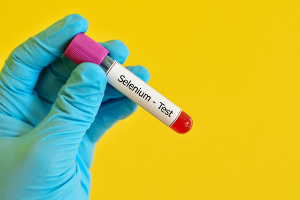
 The need for the trace element
The need for the trace element  In ancient times when our ancestors hunted, they consumed every inch of the animal – from one end to another. Organ meat such as the liver, the heart, and the kidneys were delicacies that contained far more essential nutrients than other parts of the animal. In Western countries, we primarily consume muscle meat. In addition, animals often get unnatural fodder with suboptimal nutrient content. This results in deficiencies and an imbalance between amino acids and fatty acids. In the following article, you can read more about organ meats (also known as offal), bone marrow, and bone broth and their high content of essential amino acids,
In ancient times when our ancestors hunted, they consumed every inch of the animal – from one end to another. Organ meat such as the liver, the heart, and the kidneys were delicacies that contained far more essential nutrients than other parts of the animal. In Western countries, we primarily consume muscle meat. In addition, animals often get unnatural fodder with suboptimal nutrient content. This results in deficiencies and an imbalance between amino acids and fatty acids. In the following article, you can read more about organ meats (also known as offal), bone marrow, and bone broth and their high content of essential amino acids,  We humans are exposed to many toxic fluoride compounds from toothpaste, mouth rinses, tap water and mineral water, Teflon pans, cookie sheets, rain clothes, waterproofing agents etc. Fluoride poisoning may increase your risk of thyroid disorders, breast cancer, kidney diseases, ADHD, and birth defects. In addition, the need for
We humans are exposed to many toxic fluoride compounds from toothpaste, mouth rinses, tap water and mineral water, Teflon pans, cookie sheets, rain clothes, waterproofing agents etc. Fluoride poisoning may increase your risk of thyroid disorders, breast cancer, kidney diseases, ADHD, and birth defects. In addition, the need for  Having healthy-looking hair means a lot to most people. Hair that splits at the ends, hair loss, and other hair problems may be caused by stress, hormone changes, and numerous other factors. In this article, we will take a closer look at the diet and its impact on hair health, and we will look at available studies of protein, iron, zinc, selenium, silica, B vitamins, vitamin D and vitamin A. The fact is, we need plenty of these nutrients in a form that the body can absorb and utilize. On the other hand, getting too much can do more harm than good, according to an article in Dermatology Practical & Conceptual, in which the author has analyzed the available research.
Having healthy-looking hair means a lot to most people. Hair that splits at the ends, hair loss, and other hair problems may be caused by stress, hormone changes, and numerous other factors. In this article, we will take a closer look at the diet and its impact on hair health, and we will look at available studies of protein, iron, zinc, selenium, silica, B vitamins, vitamin D and vitamin A. The fact is, we need plenty of these nutrients in a form that the body can absorb and utilize. On the other hand, getting too much can do more harm than good, according to an article in Dermatology Practical & Conceptual, in which the author has analyzed the available research. Lack of
Lack of 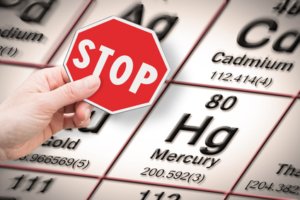 The most harmful heavy metals are mercury, cadmium, lead, nickel, and cobber, but aluminum, fluoride, iron, and calcium can also be toxic. Poisoning with heavy metals and minerals blocks other minerals such as selenium, iodine, magnesium, and zinc, all of which support numerous essential enzyme processes. At the same time, if you lack these important minerals, heavy metals are able to cause unhindered damage and increase your risk of impaired immunity, impaired fertility, autoimmune diseases, thyroid diseases, brain damage, neurological diseases, depression, hypersensitivity, etc. Chronic heavy metal toxicity is an overlooked problem, but in this article, you can read more about the subject and find out how to deal with it.
The most harmful heavy metals are mercury, cadmium, lead, nickel, and cobber, but aluminum, fluoride, iron, and calcium can also be toxic. Poisoning with heavy metals and minerals blocks other minerals such as selenium, iodine, magnesium, and zinc, all of which support numerous essential enzyme processes. At the same time, if you lack these important minerals, heavy metals are able to cause unhindered damage and increase your risk of impaired immunity, impaired fertility, autoimmune diseases, thyroid diseases, brain damage, neurological diseases, depression, hypersensitivity, etc. Chronic heavy metal toxicity is an overlooked problem, but in this article, you can read more about the subject and find out how to deal with it.
 HIV, the virus that causes AIDS, is potentially life-threatening because it attacks central cells in the immune defense. It has also been documented that HIV patients have an increased risk of lacking
HIV, the virus that causes AIDS, is potentially life-threatening because it attacks central cells in the immune defense. It has also been documented that HIV patients have an increased risk of lacking  Sales of plant-based meat, also known as meat analogue, has increased for environmental reasons and a number of other reasons. However, even if meat analogue does resemble regular animal meat it has an entirely different nutritional value. According to a study from Duke University in the United States, real meat contains 22 different nutrients and metabolites that you do not get from meat analogue. On the other hand, meat based on vegetarian sources contains 31 nutrients and metabolites that are not found in normal meat. The largest difference between the two, according to the scientists, lies in their content of amino acids, peptides, vitamins, phenols, and fatty acids. The researchers also mention that a diet based on vegetable and animal products is complementary because it contains more nutrients.
Sales of plant-based meat, also known as meat analogue, has increased for environmental reasons and a number of other reasons. However, even if meat analogue does resemble regular animal meat it has an entirely different nutritional value. According to a study from Duke University in the United States, real meat contains 22 different nutrients and metabolites that you do not get from meat analogue. On the other hand, meat based on vegetarian sources contains 31 nutrients and metabolites that are not found in normal meat. The largest difference between the two, according to the scientists, lies in their content of amino acids, peptides, vitamins, phenols, and fatty acids. The researchers also mention that a diet based on vegetable and animal products is complementary because it contains more nutrients. Hashimoto’s thyroiditis is the most common underlying cause of hypothyroidism. It is characterized by extreme fatigue, weight gain, and a number of other symptoms. Hashimoto’s is an autoimmune condition where antibodies attack the thyroid gland. Many people who get treatment for their disease don’t improve, on the contrary. According to a meta-analysis published in Medicine, however,
Hashimoto’s thyroiditis is the most common underlying cause of hypothyroidism. It is characterized by extreme fatigue, weight gain, and a number of other symptoms. Hashimoto’s is an autoimmune condition where antibodies attack the thyroid gland. Many people who get treatment for their disease don’t improve, on the contrary. According to a meta-analysis published in Medicine, however,  The mitochondria are the powerhouses of our cells that churn out energy in a process that involves oxygen, Q10, selenium, and other nutrients. Around 100 years ago, the German Nobel Prize winner, Professor Otto Warburg, demonstrated that even if cancer can be caused by a number of secondary factors, there is only one primary cause: alterations in the mitochondrial oxygen turnover. In his recent book, Tripping over the Truth, molecular biologist Travis Christoffersen describes how contemporary scientists confirm Warburg’s theories and says that we need to look at prevention and cancer treatment from an entirely different angle. Other studies show that Parkinson’s disease, migraine, senility, chronic fatigue, fibromyalgia, epilepsy, and other neurological disorders may be rooted in defects of the mitochondria that have many other functions besides delivering energy. It is therefore vital to take care of the mitochondria throughout life. You can read more about the ketogenic diet that optimizes mitochondrial energy turnover in different mitochondrial diseases.
The mitochondria are the powerhouses of our cells that churn out energy in a process that involves oxygen, Q10, selenium, and other nutrients. Around 100 years ago, the German Nobel Prize winner, Professor Otto Warburg, demonstrated that even if cancer can be caused by a number of secondary factors, there is only one primary cause: alterations in the mitochondrial oxygen turnover. In his recent book, Tripping over the Truth, molecular biologist Travis Christoffersen describes how contemporary scientists confirm Warburg’s theories and says that we need to look at prevention and cancer treatment from an entirely different angle. Other studies show that Parkinson’s disease, migraine, senility, chronic fatigue, fibromyalgia, epilepsy, and other neurological disorders may be rooted in defects of the mitochondria that have many other functions besides delivering energy. It is therefore vital to take care of the mitochondria throughout life. You can read more about the ketogenic diet that optimizes mitochondrial energy turnover in different mitochondrial diseases. Ageing is linked to uncontrolled, low-grade inflammation, also known as inflammaging, according to articles published in the journals Nature Medicine and Ageing and Disease. Although chronic inflammation is not felt directly it may set the stage for cardiovascular disease, rheumatism, Alzheimer’s disease, and cancer. Chronic inflammation may also cause virus infections like influenza and COVID-19 to become life-threatening because the immune defense suddenly overreacts and attacks healthy tissue. It is therefore vital for ageing people to protect themselves against chronic inflammation, which means getting plenty of vitamin D, selenium, coenzyme Q10, zinc, omega-3, and melatonin. These are all things that many older people often lack.
Ageing is linked to uncontrolled, low-grade inflammation, also known as inflammaging, according to articles published in the journals Nature Medicine and Ageing and Disease. Although chronic inflammation is not felt directly it may set the stage for cardiovascular disease, rheumatism, Alzheimer’s disease, and cancer. Chronic inflammation may also cause virus infections like influenza and COVID-19 to become life-threatening because the immune defense suddenly overreacts and attacks healthy tissue. It is therefore vital for ageing people to protect themselves against chronic inflammation, which means getting plenty of vitamin D, selenium, coenzyme Q10, zinc, omega-3, and melatonin. These are all things that many older people often lack.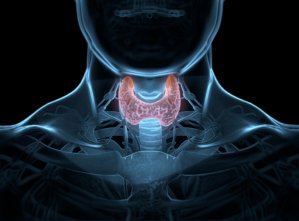

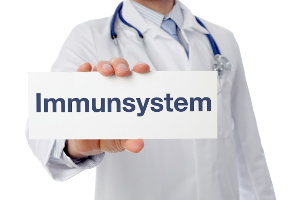 Minerals are involved in countless functions of vital importance to the immune defense. That is why lack of one or several minerals can increase your risk of infections or perhaps trigger unwanted inflammation that can damage healthy tissue. In a new review article that is published in Nutrients, a group of scientists look at magnesium, selenium, zinc, iron, and copper and their role in the immune system. They also look at the fact that vegans, older people, chronically ill, pregnant women, and elite athletes often have nutrient deficiencies that call for supplementation. The agricultural soil in Europe and many other parts of the world is selenium-depleted, which makes it challenging to get enough selenium from our diets. But it is also important not to overdose on minerals. In this article, you can read more about how to optimize your nutrient intake for your immune health.
Minerals are involved in countless functions of vital importance to the immune defense. That is why lack of one or several minerals can increase your risk of infections or perhaps trigger unwanted inflammation that can damage healthy tissue. In a new review article that is published in Nutrients, a group of scientists look at magnesium, selenium, zinc, iron, and copper and their role in the immune system. They also look at the fact that vegans, older people, chronically ill, pregnant women, and elite athletes often have nutrient deficiencies that call for supplementation. The agricultural soil in Europe and many other parts of the world is selenium-depleted, which makes it challenging to get enough selenium from our diets. But it is also important not to overdose on minerals. In this article, you can read more about how to optimize your nutrient intake for your immune health. Kidney stones is a painful and quite common problem. The diet plays a major role and according to a large American population study published in Nutrients,
Kidney stones is a painful and quite common problem. The diet plays a major role and according to a large American population study published in Nutrients,  It is commonly known that degenerative diseases such as cardiovascular disease, diabetes, kidney ailments, and liver diseases are often linked to poor quality of life and shorter lifespan. Supplementing with Q10, possibly in combination with selenium yeast, may have a positive influence on the mentioned conditions and lower your risk of premature death by as much as 50 percent or more. In fact, Q10 can help delay the ageing processes by protecting the heart, cardiovascular system, and cells, according to a large review article published online by NCBI (National Center for Biotechnology Information). As mentioned in this article, it is essential to use supplements that are pharmaceutical-grade in order to ensure proper absorption in blood and tissue.
It is commonly known that degenerative diseases such as cardiovascular disease, diabetes, kidney ailments, and liver diseases are often linked to poor quality of life and shorter lifespan. Supplementing with Q10, possibly in combination with selenium yeast, may have a positive influence on the mentioned conditions and lower your risk of premature death by as much as 50 percent or more. In fact, Q10 can help delay the ageing processes by protecting the heart, cardiovascular system, and cells, according to a large review article published online by NCBI (National Center for Biotechnology Information). As mentioned in this article, it is essential to use supplements that are pharmaceutical-grade in order to ensure proper absorption in blood and tissue.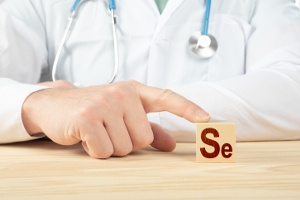 When it comes to COVID-19 and other seasonal virus infections most of the focus is concentrated on vitamin D deficiency. According to a Belgian study, however, lack of selenium and zinc additionally increases the risk of infections, complications, and death, especially among patients who already suffer from chronic diseases. The scientists conclude that supplementation with selenium and zinc may help improve treatments. Selenium and zinc deficiencies are rather common and that is a problem for public health. Even with a healthy diet, it is practically impossible for Europeans to get enough selenium because of the nutrient-depleted farmland. There are also many people with zinc deficiencies due to unhealthy diets, ageing, chronic diseases, and other contributing factors. We must be much more focused on getting enough selenium and zinc, not least for the sake of preventing virus infections and other problems.
When it comes to COVID-19 and other seasonal virus infections most of the focus is concentrated on vitamin D deficiency. According to a Belgian study, however, lack of selenium and zinc additionally increases the risk of infections, complications, and death, especially among patients who already suffer from chronic diseases. The scientists conclude that supplementation with selenium and zinc may help improve treatments. Selenium and zinc deficiencies are rather common and that is a problem for public health. Even with a healthy diet, it is practically impossible for Europeans to get enough selenium because of the nutrient-depleted farmland. There are also many people with zinc deficiencies due to unhealthy diets, ageing, chronic diseases, and other contributing factors. We must be much more focused on getting enough selenium and zinc, not least for the sake of preventing virus infections and other problems.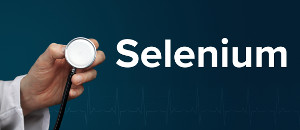 Around one billion people worldwide are believed to lack
Around one billion people worldwide are believed to lack 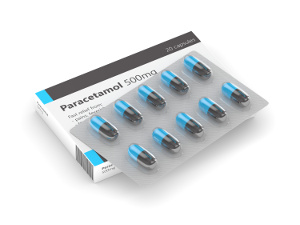 Millions of people take painkillers such as Panadol or Calpol that contain paracetamol, and an estimated one billion people or so lack
Millions of people take painkillers such as Panadol or Calpol that contain paracetamol, and an estimated one billion people or so lack 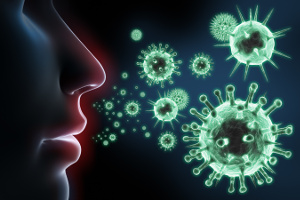
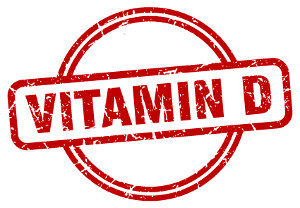 Hashimoto’s disease (Hashimoto’s thyroiditis) is an overlooked scourge that leads to hypothyroidism and is particularly widespread among women. Postpartum thyroiditis that also slows down your metabolism follows in the wake of pregnancy. Graves’ disease where the metabolism speeds up (hyperthyroidism) is less common. These three thyroid disorders belong to the group of autoimmune disorders where the immune defense attacks the body’s tissues, and it appears that lack of
Hashimoto’s disease (Hashimoto’s thyroiditis) is an overlooked scourge that leads to hypothyroidism and is particularly widespread among women. Postpartum thyroiditis that also slows down your metabolism follows in the wake of pregnancy. Graves’ disease where the metabolism speeds up (hyperthyroidism) is less common. These three thyroid disorders belong to the group of autoimmune disorders where the immune defense attacks the body’s tissues, and it appears that lack of 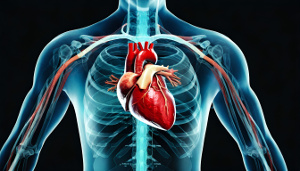
 Congenital heart defects are the most common birth defect on a global scale. The condition is associated with a number of different complications and even comes with an increased risk of infant death. Maternal nutritional status is vital for the development of the fetus, and a team of Chinese scientists has looked closer at how
Congenital heart defects are the most common birth defect on a global scale. The condition is associated with a number of different complications and even comes with an increased risk of infant death. Maternal nutritional status is vital for the development of the fetus, and a team of Chinese scientists has looked closer at how  Earlier studies have found a link between low
Earlier studies have found a link between low 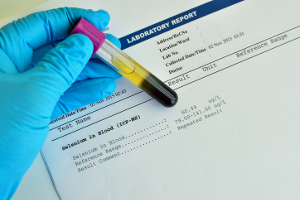 An international science team from the University of Surrey in England has found a link between low
An international science team from the University of Surrey in England has found a link between low 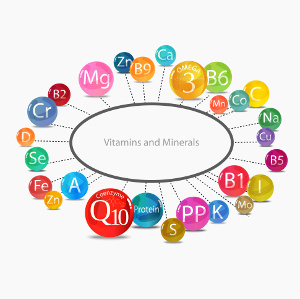 There are around 750,000 people in Denmark who take several medical drugs per day, and the number of users is on the rise. What many people are unaware of is that different drugs can disrupt the body’s ability to absorb or utilize one or several nutrients, especially things like
There are around 750,000 people in Denmark who take several medical drugs per day, and the number of users is on the rise. What many people are unaware of is that different drugs can disrupt the body’s ability to absorb or utilize one or several nutrients, especially things like 
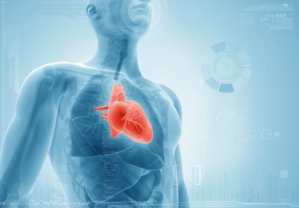 The majority of supplements with vitamins and minerals fails to extend life or protect against cardiovascular disease, although fish oil does seem to have a good effect, according to a large review from John Hopkins University. On the other hand, a Danish study shows that blood levels of vitamin D are crucial for a person’s expected lifespan, and a groundbreaking Swedish study shows that patented supplements with Q10 and selenium benefit older people by improving their cardiac health and reducing cardiovascular mortality by 50%. What matters is to use supplements that contain nutrients in the right quantity, which have a proper quality and can be absorbed by the body. In the following, you can read more about the different studies and learn how you can improve your heart health and increase your chances of a longer life.
The majority of supplements with vitamins and minerals fails to extend life or protect against cardiovascular disease, although fish oil does seem to have a good effect, according to a large review from John Hopkins University. On the other hand, a Danish study shows that blood levels of vitamin D are crucial for a person’s expected lifespan, and a groundbreaking Swedish study shows that patented supplements with Q10 and selenium benefit older people by improving their cardiac health and reducing cardiovascular mortality by 50%. What matters is to use supplements that contain nutrients in the right quantity, which have a proper quality and can be absorbed by the body. In the following, you can read more about the different studies and learn how you can improve your heart health and increase your chances of a longer life.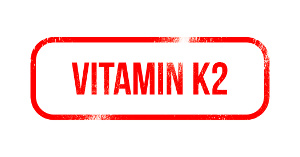 Your birth attest reveals your actual age but your biological age gives a more accurate picture of your health and life expectancy. Our biological age and cardiovascular health are closely connected, with atherosclerosis and arterial stiffness representing a progressive process that eventually leads to the majority of deaths. Nonetheless, you can do a lot yourself by making sure to get sufficient amounts the nutrients that are most vital for good cardiovascular health. In this article, we will look closer at some current studies of vitamin K2, Q10, selenium, and omega-3, all of which are essential nutrients that prevent, each in their own way, atherosclerosis, arterial stiffness, and premature death as a result of having high heart age.
Your birth attest reveals your actual age but your biological age gives a more accurate picture of your health and life expectancy. Our biological age and cardiovascular health are closely connected, with atherosclerosis and arterial stiffness representing a progressive process that eventually leads to the majority of deaths. Nonetheless, you can do a lot yourself by making sure to get sufficient amounts the nutrients that are most vital for good cardiovascular health. In this article, we will look closer at some current studies of vitamin K2, Q10, selenium, and omega-3, all of which are essential nutrients that prevent, each in their own way, atherosclerosis, arterial stiffness, and premature death as a result of having high heart age.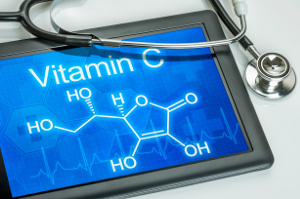 Although the course of disease for most people with COVID-19 is rather mild, the greatest concern is the life-threatening complications in the respiratory tract caused by oxidative stress and cytokine storm where the immune system attacks healthy tissue. Scientists are busy looking for new therapies such as intravenous
Although the course of disease for most people with COVID-19 is rather mild, the greatest concern is the life-threatening complications in the respiratory tract caused by oxidative stress and cytokine storm where the immune system attacks healthy tissue. Scientists are busy looking for new therapies such as intravenous 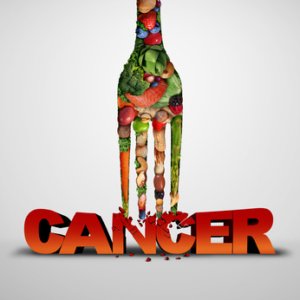 People, who eat nutrient-depleted diets, have an increased risk of contracting cancer, according to a French study that is published in PLoS Medicine. The scientists therefore recommend labeling food to help consumers make healthier choices. In the Nordic countries, we already have the “Keyhole label” on certain healthy food items, but even if you follow the official dietary guidelines, it may be difficult to get enough vitamin D and selenium, both of which are nutrients with several anti-cancer mechanisms.
People, who eat nutrient-depleted diets, have an increased risk of contracting cancer, according to a French study that is published in PLoS Medicine. The scientists therefore recommend labeling food to help consumers make healthier choices. In the Nordic countries, we already have the “Keyhole label” on certain healthy food items, but even if you follow the official dietary guidelines, it may be difficult to get enough vitamin D and selenium, both of which are nutrients with several anti-cancer mechanisms.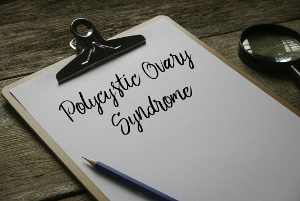 PCOS – or polycystic ovary syndrome – is a problem that occurs in 5-10 percent of women of childbearing age. It is the most common cause of involuntary infertility. Related symptoms include tiredness, hirsutism (male hair growth), acne, and irregular menstrual periods. PCOS is often linked to instable blood sugar, increased risk of insulin resistance, overweight, cardiovascular disease, type 2 diabetes, and autoimmune diseases like Hashimoto’s thyroiditis that causes slow metabolism. Diet and exercise mean a lot in terms of prevention and treatment. The same is the case with different vitamins and minerals. We will be looking closer at B vitamins, vitamin D, vitamin E, and coenzyme Q10, plus magnesium, zinc, selenium, chromium, iodine, and fish oil. We will also be looking at how relevant supplements, according to science, can help control blood sugar levels and the hormone balance.
PCOS – or polycystic ovary syndrome – is a problem that occurs in 5-10 percent of women of childbearing age. It is the most common cause of involuntary infertility. Related symptoms include tiredness, hirsutism (male hair growth), acne, and irregular menstrual periods. PCOS is often linked to instable blood sugar, increased risk of insulin resistance, overweight, cardiovascular disease, type 2 diabetes, and autoimmune diseases like Hashimoto’s thyroiditis that causes slow metabolism. Diet and exercise mean a lot in terms of prevention and treatment. The same is the case with different vitamins and minerals. We will be looking closer at B vitamins, vitamin D, vitamin E, and coenzyme Q10, plus magnesium, zinc, selenium, chromium, iodine, and fish oil. We will also be looking at how relevant supplements, according to science, can help control blood sugar levels and the hormone balance. During pregnancy, the unborn child needs different nutrients for proper development of its brain and nervous system. Even if the mother eats a balanced diet, it can be difficult to get enough
During pregnancy, the unborn child needs different nutrients for proper development of its brain and nervous system. Even if the mother eats a balanced diet, it can be difficult to get enough  Most people thrive on the idea of staying physically active throughout life, but as we grow older, our skeletal muscle slowly vanishes and our figure changes. This is known as sarcopenia and is one of the main reasons why older people become more fragile and perhaps even disabled. Exercise and diet play a major role, and it seems that the official dietary guidelines are not optimal and should focus more on increased intake of protein as well as lysine, vitamin D, and omega-3 according to a new Canadian study. Earlier research shows that magnesium, selenium, and Q10 are also important for muscle mass and strength.
Most people thrive on the idea of staying physically active throughout life, but as we grow older, our skeletal muscle slowly vanishes and our figure changes. This is known as sarcopenia and is one of the main reasons why older people become more fragile and perhaps even disabled. Exercise and diet play a major role, and it seems that the official dietary guidelines are not optimal and should focus more on increased intake of protein as well as lysine, vitamin D, and omega-3 according to a new Canadian study. Earlier research shows that magnesium, selenium, and Q10 are also important for muscle mass and strength.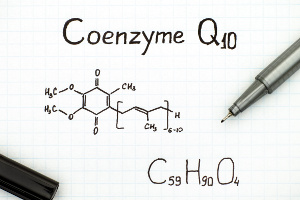 A previous study has demonstrated that daily supplementation with
A previous study has demonstrated that daily supplementation with 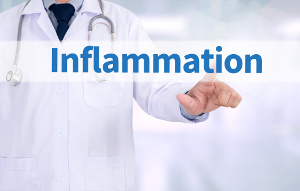
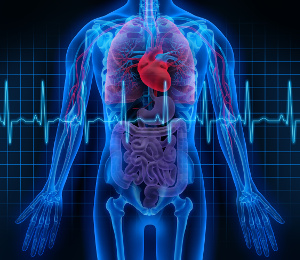 Cardiovascular diseases are widespread and one of the major causes of death. The risk is increased by factors such as ageing, diabetes, and overweight. One of the underlying causes is oxidative stress, which is an imbalance between free radicals and antioxidants.
Cardiovascular diseases are widespread and one of the major causes of death. The risk is increased by factors such as ageing, diabetes, and overweight. One of the underlying causes is oxidative stress, which is an imbalance between free radicals and antioxidants. 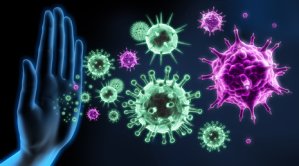 The immune system needs selenium every single day. Lack of this nutrient increases your risk of virus infections, inflammation, and cancer. It is a huge problem that many of us get too little selenium because of factors such as nutrient-depleted soil and unhealthy eating habits.
The immune system needs selenium every single day. Lack of this nutrient increases your risk of virus infections, inflammation, and cancer. It is a huge problem that many of us get too little selenium because of factors such as nutrient-depleted soil and unhealthy eating habits.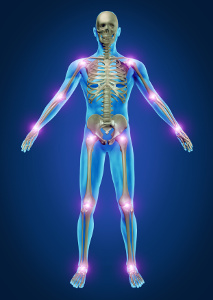 Rheumatism is the most widespread chronic disease in Denmark, and many people experience a worsening of the symptoms during the winter period. The majority of people take anti-inflammatory drugs for years, but this increases their risk of bleeding stomach ulcers and other side effects, not to mention premature death. The underlying cause is chronic inflammation and it is a problem that is not properly addressed. For decades, Nobel Prize-winners and other scientists have revealed what causes chronic inflammation and how the problem in many cases can be helped with various supplements that help cure the pain. In the following, we have summarized a lot of the research that has been conducted with vitamin D, fish oil, magnesium, selenium, zinc, and glucosamine, and we have looked at why the anti-inflammatory lifestyle has become such a health trend. It is essential to use supplements that contain the different ingredients in therapeutic doses and with a quality that allows the body to absorb and utilize the active compounds.
Rheumatism is the most widespread chronic disease in Denmark, and many people experience a worsening of the symptoms during the winter period. The majority of people take anti-inflammatory drugs for years, but this increases their risk of bleeding stomach ulcers and other side effects, not to mention premature death. The underlying cause is chronic inflammation and it is a problem that is not properly addressed. For decades, Nobel Prize-winners and other scientists have revealed what causes chronic inflammation and how the problem in many cases can be helped with various supplements that help cure the pain. In the following, we have summarized a lot of the research that has been conducted with vitamin D, fish oil, magnesium, selenium, zinc, and glucosamine, and we have looked at why the anti-inflammatory lifestyle has become such a health trend. It is essential to use supplements that contain the different ingredients in therapeutic doses and with a quality that allows the body to absorb and utilize the active compounds.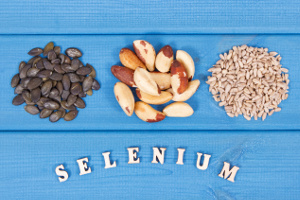 The cells in our body are constantly renewed but they can only divide a limited number of times. It all depends on the length of their telomeres, which one can compare to the protective plastic tips at the ends of shoelaces. Every time a cell divides, its telomeres are reduced in length, bringing the cell closer to its terminal phase. Now, a Chinese study has revealed that higher
The cells in our body are constantly renewed but they can only divide a limited number of times. It all depends on the length of their telomeres, which one can compare to the protective plastic tips at the ends of shoelaces. Every time a cell divides, its telomeres are reduced in length, bringing the cell closer to its terminal phase. Now, a Chinese study has revealed that higher 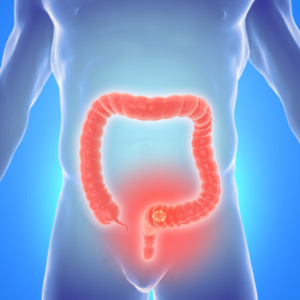 Colorectal cancer is one of the most common cancer types. Although the diet is of huge importance, the understanding of minerals and their interactions and preventative effect is limited. Earlier studies have shown that calcium and selenium have protective roles. It also looks as if having more selenium in the blood can improve the effect of calcium. This was demonstrated in a new Polish study that is published in BMC Nutrition. The scientists point out that there is widespread selenium deficiency in Europe and that supplementation may be needed.
Colorectal cancer is one of the most common cancer types. Although the diet is of huge importance, the understanding of minerals and their interactions and preventative effect is limited. Earlier studies have shown that calcium and selenium have protective roles. It also looks as if having more selenium in the blood can improve the effect of calcium. This was demonstrated in a new Polish study that is published in BMC Nutrition. The scientists point out that there is widespread selenium deficiency in Europe and that supplementation may be needed.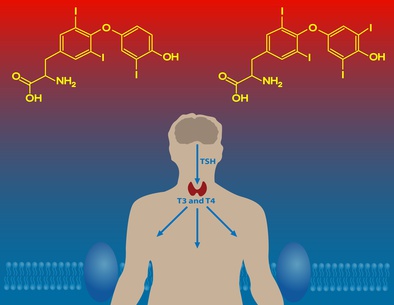
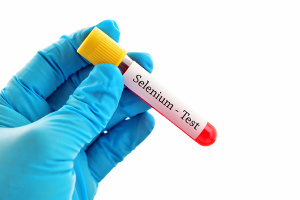
 There is a growing interest among scientists in selenium’s role in the brain and nervous system, and a placebo-controlled study published in Frontiers in Nutrition shows that
There is a growing interest among scientists in selenium’s role in the brain and nervous system, and a placebo-controlled study published in Frontiers in Nutrition shows that 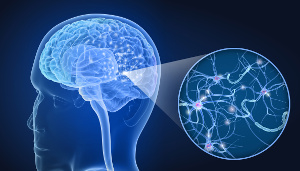 It’s commonly known that physical activity boosts the brain’s ability to form new brain cells – or neurons. Still, the underlying mechanisms have been a mystery to science. A team of Australian scientists, however, has recently discovered that, during exercise, mice produce a selenium-containing protein that helps the brain synthesize new brain cells. The scientists consider this to be a rather fantastic study, and it is assumed that
It’s commonly known that physical activity boosts the brain’s ability to form new brain cells – or neurons. Still, the underlying mechanisms have been a mystery to science. A team of Australian scientists, however, has recently discovered that, during exercise, mice produce a selenium-containing protein that helps the brain synthesize new brain cells. The scientists consider this to be a rather fantastic study, and it is assumed that 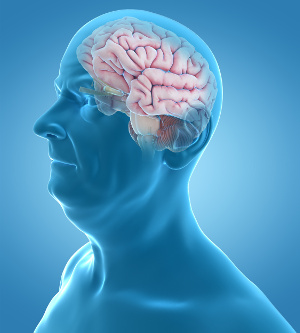 There seems to be a relation between ageing, Alzheimer’s disease, and the widespread problems with selenium deficiency. According to a new study that is published in Antioxidants, scientist have revealed how different selenium-containing proteins can affect pathological processes in the brain that are known to cause Alzheimer’s disease. They believe
There seems to be a relation between ageing, Alzheimer’s disease, and the widespread problems with selenium deficiency. According to a new study that is published in Antioxidants, scientist have revealed how different selenium-containing proteins can affect pathological processes in the brain that are known to cause Alzheimer’s disease. They believe 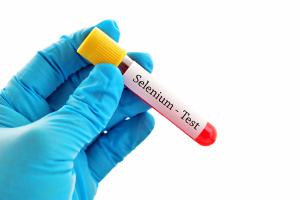
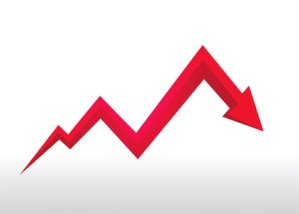 Although cancer treatments have improved drastically, science has still not managed to break the curve. On the contrary. A growing number of people contract cancer, and that is why we should focus more on the trace element,
Although cancer treatments have improved drastically, science has still not managed to break the curve. On the contrary. A growing number of people contract cancer, and that is why we should focus more on the trace element, 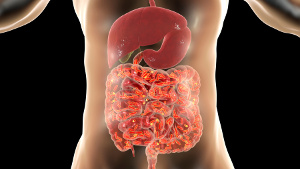

 Lack of
Lack of 
 Cataracts is one of the leading causes of vision impairment and blindness. The risk is increased by old age and diabetes. According to a new study that is published in Frontiers in Nutrition, a relatively high
Cataracts is one of the leading causes of vision impairment and blindness. The risk is increased by old age and diabetes. According to a new study that is published in Frontiers in Nutrition, a relatively high 
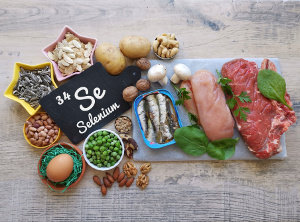
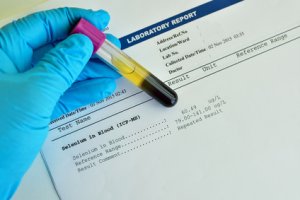 We all get exposed to mercury, a neurotoxin that is found to a great extent in nature and in our environment. According to an EU report, mercury is a large economic burden to society because of the costs related to lowered IQ levels. For that reason alone, we should aim to limit our exposure to mercury and also take a closer look at how selenium protects against the harmful heavy metal – provided our selenium levels are adequately high.
We all get exposed to mercury, a neurotoxin that is found to a great extent in nature and in our environment. According to an EU report, mercury is a large economic burden to society because of the costs related to lowered IQ levels. For that reason alone, we should aim to limit our exposure to mercury and also take a closer look at how selenium protects against the harmful heavy metal – provided our selenium levels are adequately high.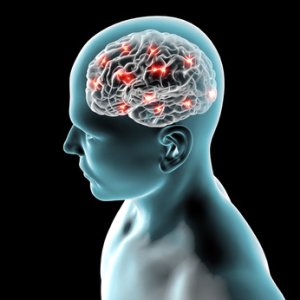
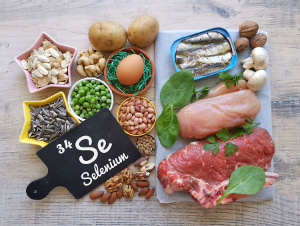 The rate of inflammatory bowel diseases like ulcerous colitis is growing, and diet plays a major role. Even if you eat a healthy diet, it can be a challenge to get enough
The rate of inflammatory bowel diseases like ulcerous colitis is growing, and diet plays a major role. Even if you eat a healthy diet, it can be a challenge to get enough 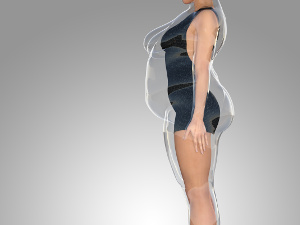
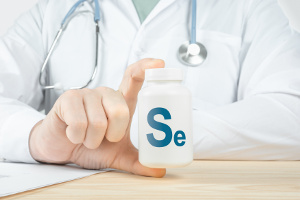 The brain is particularly vulnerable towards oxidative stress and local inflammation that can set the stage for Alzheimer’s disease and other neurological conditions. However, it turns out that certain selenium-containing antioxidants are able to protect the brain neurons against damage. Also, selenium supplements can improve cognitive performance in patients suffering from mild cognitive impairment and Alzheimer’s disease, according to a meta-analysis that is published in Nutrients.
The brain is particularly vulnerable towards oxidative stress and local inflammation that can set the stage for Alzheimer’s disease and other neurological conditions. However, it turns out that certain selenium-containing antioxidants are able to protect the brain neurons against damage. Also, selenium supplements can improve cognitive performance in patients suffering from mild cognitive impairment and Alzheimer’s disease, according to a meta-analysis that is published in Nutrients. Cancer in the colon and rectum is rather common. One in 20 Danes gets colon cancer at some point in life. Since 2014, the Danish Health Authority has recommended a screening program, offering middle-aged and older people a screening for colon cancer every other year. If the disease is discovered in its early stage, the chances of successful treatment increase. Supplementation with organic selenium yeast has been shown to lower the risk of colorectal cancer in the first place, and selenium even has a protective effect against other cancer forms, so the nutrient is an essential part of the prevention. The problem is that selenium deficiencies are so common as a result of our nutrient-depleted soil.
Cancer in the colon and rectum is rather common. One in 20 Danes gets colon cancer at some point in life. Since 2014, the Danish Health Authority has recommended a screening program, offering middle-aged and older people a screening for colon cancer every other year. If the disease is discovered in its early stage, the chances of successful treatment increase. Supplementation with organic selenium yeast has been shown to lower the risk of colorectal cancer in the first place, and selenium even has a protective effect against other cancer forms, so the nutrient is an essential part of the prevention. The problem is that selenium deficiencies are so common as a result of our nutrient-depleted soil.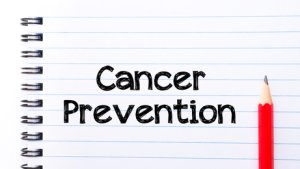 All our cells contain different
All our cells contain different  Involuntary childlessness has become increasingly common. Many women find themselves in a race against time, and their biological clock keeps ticking louder and louder. Fertility therapies, miscarriages, preeclampsia, and other complications during pregnancy contribute to the physical and emotional burden. In a new Australian study that is published in Nutrients, the authors write about
Involuntary childlessness has become increasingly common. Many women find themselves in a race against time, and their biological clock keeps ticking louder and louder. Fertility therapies, miscarriages, preeclampsia, and other complications during pregnancy contribute to the physical and emotional burden. In a new Australian study that is published in Nutrients, the authors write about  Cancer has become one of the leading causes of death, with rates going up every year. The diet plays a major role and there is a lot of focus on
Cancer has become one of the leading causes of death, with rates going up every year. The diet plays a major role and there is a lot of focus on  "After about one week of taking the Q10 supplement I could feel a huge difference," says 23-year old Alan Piccini, who has been suffering from extreme fatigue and muscle aches ever since he was a child.
"After about one week of taking the Q10 supplement I could feel a huge difference," says 23-year old Alan Piccini, who has been suffering from extreme fatigue and muscle aches ever since he was a child. “Taking capsules with co-enzyme Q10 has freed me of the severe side effects of my cholesterol lowering medicine,” Mrs Franken explains.
“Taking capsules with co-enzyme Q10 has freed me of the severe side effects of my cholesterol lowering medicine,” Mrs Franken explains.